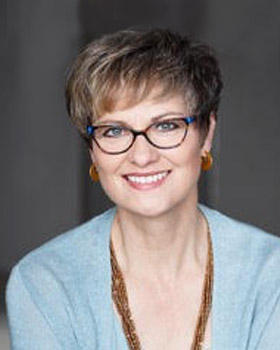What is Emotionally Focused Couples Therapy (EFCT)?

What is emotionally focused couples therapy?
Couples usually come into therapy with these common complaints:
1) We don’t communicate well.
2) We repeat the same arguments or behaviors over and over again.
3) We’re not close, connected, or “in love anymore.”
Emotionally Focused Couples Therapy (EFCT) is a very effective way to address these concerns because it focuses on the deeper emotional causes of feeling distant or disconnected or from excessive conflict. EFCT is a structured approach to couples therapy formulated in the 1980s and is usually short-term (8-20 sessions). It is based on research on adult attachment and bonding. A substantial body of research now exists and shows that with EFCT, 90-75% of couples move from distress to recovery and approximately 90% show significant improvements.
How does emotionally focused couples therapy work?
Unlike individual psychotherapy, EFCT addresses the specific relationship issues between partners. Although it can be helpful to work on issues from childhood or previous relationships to bring insight or understanding to a person, EFCT is an experiential therapy, meaning it works to change how couples emotionally experience each other right in therapy and to take that new experience out into the world.
The most common pattern of relating is one of pursue-withdraw or criticize-defend. With EFCT couples learn to identify their pattern when it happens (in and out of therapy), understand surface emotions and behaviors (usually anger or withdrawing), then deeper emotions (fear, loneliness, sadness, disappointment, etc. ) and attachment fears (“Does she love me?” “Am I good enough for him?” “I can never get it right with her,” etc).
When couples learn to view their partners not as angry or withdrawing, but as fearful or lonely, new cycles of bonding interactions can occur and replace negative cycles. These positive cycles then become self-reinforcing and create permanent change. The relationship becomes a safe haven and a healing environment for both partners.
Other styles of relationship therapy tend to focus on cognitive-behavioral interventions — getting couples to think and change how they behave. However, these changes do not often last because the deeper emotional drives that cause the behaviors are not changed. EFCT can often be more effective because it delves into the deeper emotions that drive behavior.
Goals of emotionally focused couples therapy
- To expand and re-organize key emotional responses – the music of the attachment dance.
- To create a shift in partners’ interactional positions and initiate new cycles of interaction.
- To foster the creation of a secure bond between partners.
Who can benefit from emotionally focused couples therapy?
EFCT is being used with many different kinds of couples throughout the world. However, it works best in couples who are fully committed to making the relationship work and have reasonable levels of trust in each other. Couples experiencing emotional or physical abuse, active affairs, or active addictions are not recommended for EFCT.
Find your best-fit therapist and book an appointment instantly here.
Resources:
For more information on EFCT go to www.iceeft.com
Books:
“An Emotionally Focused Workbook for Couples,” by Veronica Kailos-Lilly and Jennifer Fitzgerald
“Hold Me Tight: Seven Conversations for a Lifetime of Love,” by Sue Johnson (developer of EFCT).
“8 Keys to Building Your Best Relationships,” by Daniel A. Hughes
YouTube:
Dr. Sue Johnson and Dr. Ed Tronick on Adult Attachment
Free PDF Summary:
“What to Expect in Emotionally Focused Therapy for Couples” by Harper West
Ready to prioritize your mental health?
Great Lakes Psychology Group is here to help. With an extensive network of caring therapists available to meet online or in-person, we make it easy to find the right fit for your unique needs.




